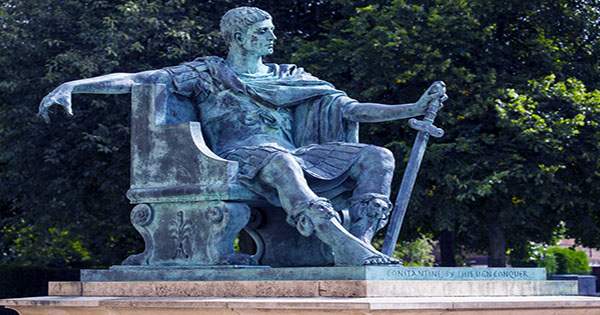Although it may appear like ruling one of the world’s greatest empires in a comfortable position, it turns out that Roman emperors had one of the most dangerous jobs in human history. While it’s generally known that many of Rome’s rulers died untimely deaths, recent research has proven that their deaths were determined by the same mathematical formula that governs earthquake severity and the number of social media followers a person has. The study authors report in Royal Society Open Science that only 24.8 percent of the 175 men who governed the Roman Empire died of natural causes, with the rest murdered, killed in battle, or forced to commit suicide. This discovery is intriguing because it shows that the destiny of these leaders can be predicted using a mathematical pattern called a power law.
“Power-law distributions of probabilities are found in many other phenomena associated with complex systems, such as lunar crater sizes, earthquake magnitudes, word frequencies in texts, company market value, and even the number of ‘followers’ people have on social media,” study author Francisco Rodrigues explained in a statement. A power law is a statistical connection that defines how a relative change in one quantity causes a proportional change in the other. The Pareto principle, sometimes known as the 80/20 rule, holds that a common occurrence has an 80% chance of occurring whereas a rare event has a 20% chance of occurring.
The Pareto principle has been used to describe the link between common little earthquakes and uncommon major seismic events. Similarly, this power law can be used to explain the proportion of people with a modest social media following versus those with thousands of followers. Natural death is definitely an uncommon occurrence in the case of Roman emperors, and it is far overshadowed by the more regular incidence of violent death. Emperor Claudius, who was poisoned by his wife Agrippina in the year 54 AD so that her son Nero could gain the throne, was one of many who fell afoul of this law. Nero was ousted and forced to commit suicide 15 years later, so this did not help him much.
In contrast, a number of prominent Roman emperors, such as Augustus, Vespasian, Hadrian, and Marcus Aurelius, managed to stay on the right side of the Pareto principle and die peacefully. When the researchers dug deeper into the data, they discovered that emperors were the ones who were most likely to die violently soon after assuming power. “This finding could be related to the new emperor’s challenges in dealing with the duties of the position and his lack of political abilities,” they write.
After that, the chances of dying in a bloodbath fall steadily until an emperor has reigned for 13 years, at which point they suddenly increase once more. According to the authors, this could be because new rivals emerge after a certain amount of time has passed, while old enemies may regroup. As a side note, the emperor Trajan was thought to have been caught in a large earthquake at Antioch in the year 115 AD, but died two years later of natural causes, demonstrating that the Pareto Principle can work both ways.














